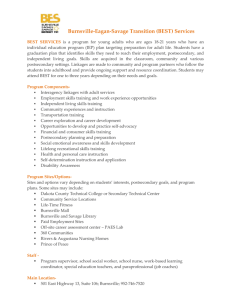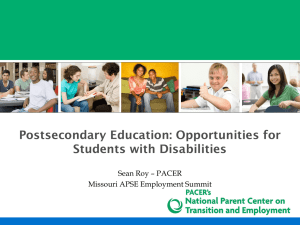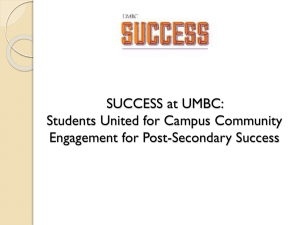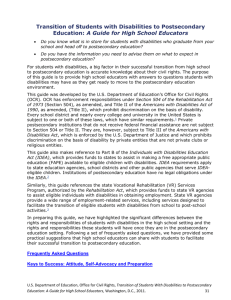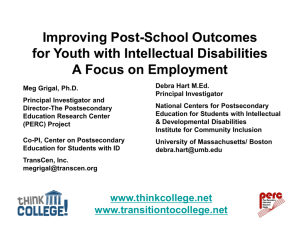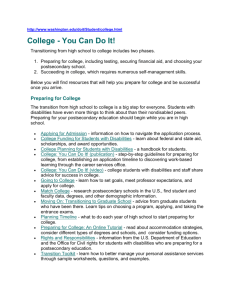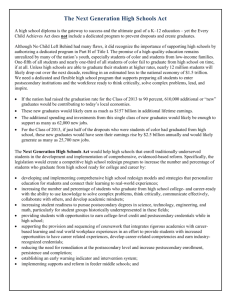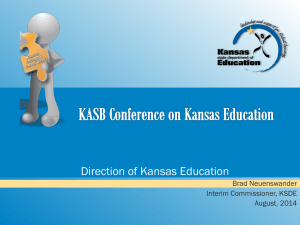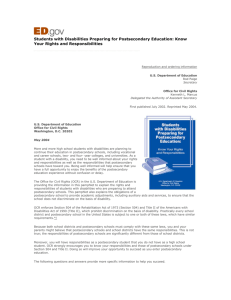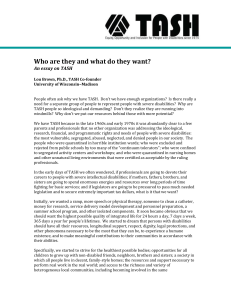TASH-Resolution-on-Post-Secondary
advertisement
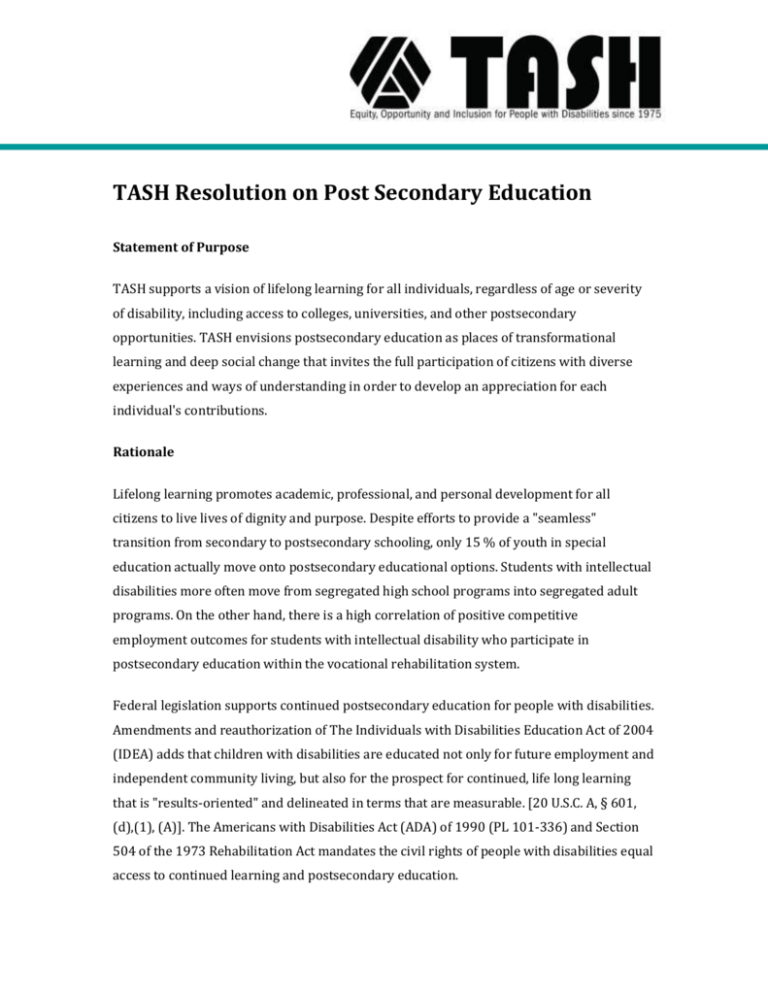
TASH Resolution on Post Secondary Education Statement of Purpose TASH supports a vision of lifelong learning for all individuals, regardless of age or severity of disability, including access to colleges, universities, and other postsecondary opportunities. TASH envisions postsecondary education as places of transformational learning and deep social change that invites the full participation of citizens with diverse experiences and ways of understanding in order to develop an appreciation for each individual's contributions. Rationale Lifelong learning promotes academic, professional, and personal development for all citizens to live lives of dignity and purpose. Despite efforts to provide a "seamless" transition from secondary to postsecondary schooling, only 15 % of youth in special education actually move onto postsecondary educational options. Students with intellectual disabilities more often move from segregated high school programs into segregated adult programs. On the other hand, there is a high correlation of positive competitive employment outcomes for students with intellectual disability who participate in postsecondary education within the vocational rehabilitation system. Federal legislation supports continued postsecondary education for people with disabilities. Amendments and reauthorization of The Individuals with Disabilities Education Act of 2004 (IDEA) adds that children with disabilities are educated not only for future employment and independent community living, but also for the prospect for continued, life long learning that is "results-oriented" and delineated in terms that are measurable. [20 U.S.C. A, § 601, (d),(1), (A)]. The Americans with Disabilities Act (ADA) of 1990 (PL 101-336) and Section 504 of the 1973 Rehabilitation Act mandates the civil rights of people with disabilities equal access to continued learning and postsecondary education. In order to assure access of people with intellectual disabilities to postsecondary education, at least three types of actions are warranted. All stakeholders (e.g., students with and without disabilities, their families, postsecondary personnel, policy makers, and community members) must work collaboratively to challenge existing policies and procedures to become more inclusive. In order to initiate and sustain positive change, the stakeholders must: develop and implement guidelines to provide appropriate supports and services; develop universal design in curriculum and promote full access to postsecondary institutions; seek positive practices that promote the public good; and ensure respect for the student's and family's cultural context. Professional development needs to be designed and provided to postsecondary faculty and staff to ensure that they are knowledgeable about evidence-based practices for effectively instructing students with varied learning styles and from culturally linguistic diverse backgrounds. Of equal importance is the need for professional development at the K-12 level to assure access for all to the general education curriculum in general education classes, prepare students for continuing their educational opportunities beyond high school, create high expectations for success in all areas of adult life, and support students and families in advocating for postsecondary education. Opportunities for all individuals to pursue inclusive educational experiences beyond the K-12 system must be created. This may include, but is not limited to the following: pursuing knowledge, investigating career goals, acquiring maturity through new experiences, gaining new responsibilities and ways of problem-solving, and exploring aspects of life by engaging in new personal and professional relationships, and learning collectively with each other. THEREFORE BE IT RESOLVED, THAT TASH, an international advocacy association of people with disabilities, their family members, other advocates and people who work in the disability field, affirms that all individuals with disabilities shall have full access and support to inclusive postsecondary education that includes all aspects of campus life. In this context, an inclusive postsecondary experience is defined as typical courses and related activities that are available to all students and not specially designed for individuals with disabilities or as separate/segregated programs. Adopted May 2006
